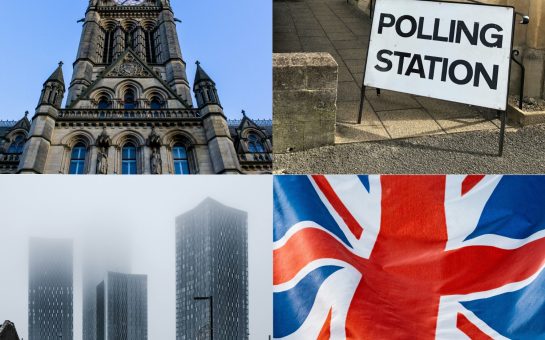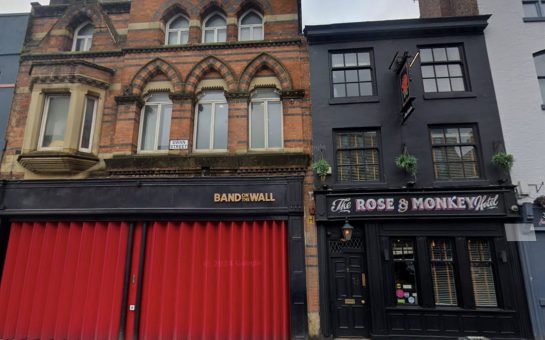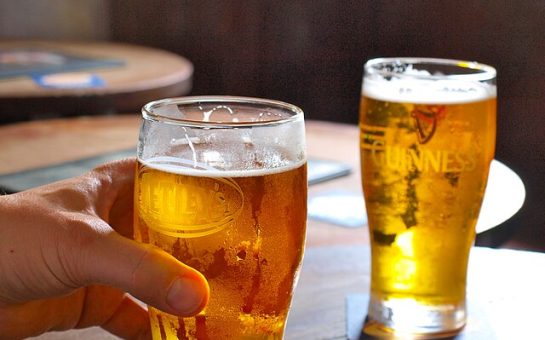Brits are frequently exposed to adverts that promote boozy lifestyles and flout advertising guidelines, claims a new study by the University of Manchester.
Alcohol is firmly embedded at the heart of British culture and while are notorious for a lack of a continental café culture – there certainly is a drinking one.
Not everyone can afford to jet off on holiday but a bit of sunshine makes even a back patio feel like the Med.
Drinking is already such a social activity – and is a big part British life – that the Manchester University research team wanted to find out if advertising companies were pushing it too far.
Recent research in the US and Australia found ads for beer and booze to be in breach of their country’s guidelines.
Marketing gurus are obviously good at their jobs because Foster’s now represents the Aussies almost as much as beaches and barbeques.
And American bourbons, like Jack Daniels, are synonymous with the Deep South in the US – but have UK brands managed to have such a big impact on British culture?
Researchers at Manchester University wanted to find out if adverts were breaking rules in the UK to capitalise on our drinking culture and ensure their brands were central to it.
Professor David French, who led the study, said: “Many adverts allude to themes such as youth culture, immoderation and social and sexual success, although many may not explicitly show them.”
Advertising guidelines are seemingly very strict, with one rule being that alcohol cannot be portrayed as an ‘indispensable part of life’ or as making drinkers more popular and successful.
MM asked people what they knew about advertising guidelines and most Mancunians thought they would only have rules about not targeting children.
They were surprised to learn that alcohol ads are not supposed to show any actors who appear to be under-25.
Faye Collingwood, 23, a designer from Altrincham, said: “That’s stupid. You can drink from the age of 18. I’m asked for ID all the time, the government needs to stop mollycoddling and recognise young people are responsible.”
When the Manchester University research team showed alcohol adverts to 373 adults, aged between 18 and 74 years, they decided that all of the adverts breached parts of the advertising code.
The four men in this Captain Morgan’s advert put drinking with their buddies before anything else.
This advert was the worst offender by 91% of people who took the survey.
The ads companies’ biggest crimes were when they showed alcohol as increasing popularity, confidence and suggesting that alcohol is capable of changing moods or behaviour for the better.
Half of all people who took the survey decided that these rules were breached, meaning this was the most common failing of the adverts.
The people MM spoke to watched the ads without reading the guidelines and thought they were perfectly acceptable.
Emma Griffiths, 30, a marketing manager from Salford, said: “I work in marketing and these all seem fine to me. We all know that adverts are trying to sell us things and alcohol ones are no different.”
Australia’s most famous export, Foster’s lager, is celebrated in this advert but does it ‘imply that drinking alcohol is a key component of social success or acceptance’?
Of the people who watched this advert in the survey, 87% thought it broke rules.
Previous studies have found that the more alcohol adverts that young people see, the earlier they start drinking and the more likely they are to indulge in binge drinking.
Drinks companies work hard to build their brand, spending around £100million-a-year on TV adverts to attempt to tune into the cultural zeitgeist and gather a loyal following.
Who could forget this advert? It was voted the ‘Best ad of all time’ in a 2002 poll by The Sunday Times and Channel 4.
And here Carlsberg sell you a fantasy life alongside their beer:
Are we really so gullible to think this lifestyle comes in a six-pack you can pick up in your local Tesco?
Alex Nuttall, 36, a teacher from Cheadle Hulme, said: “All adverts are a fantasy. Of course, Carlsberg won’t build you a house and fill it with football-loving models. At the end of the day, drinks companies need to sell stuff just the same as Gap or McDonalds.”
People were shown one of seven adverts that had been featured on the most-watched TV channels in the last month.
Overall, 75% of people rated each advert as breaching at least one rule from the advertisers’ code, suggesting that the current regulation for UK television is easily side-stepped.
Does this Strongbow advert of a lone archer ‘link alcohol with daring, toughness or aggression’?
The now-banned Eric Cantona advert for Kronenbourg infers glory onto not only drinkers – but the farmers who produce the raw ingredients for beer.
Comparing farmers to our modern-day saints, the Premier League footballer, Kronenbourg certainly make a strong case for the transformative power of beer.
Guinness takes the claims of its drink even further, with a ‘clock’ – a callback to Guinness’ famous ‘tick tock’ advert and time slogan, speeding up and slowing down time for the benefit of a sleepy town.
We’ve all lost nights to drinking – usually after nipping to the pub for a ‘quick one’ to find ourselves still there, bewildered, hours later.
However, the people who watched this advert agreed that Guinness was taking it a bit too far and 78% of them found it broke ad rules.
The ad with the least-perceived infringements of the code was this from Disaronno with only 49% of people believing it breached the code.
It is also a pretty terrible advert.
Main image courtesy of Ian Forsyth, with thanks



